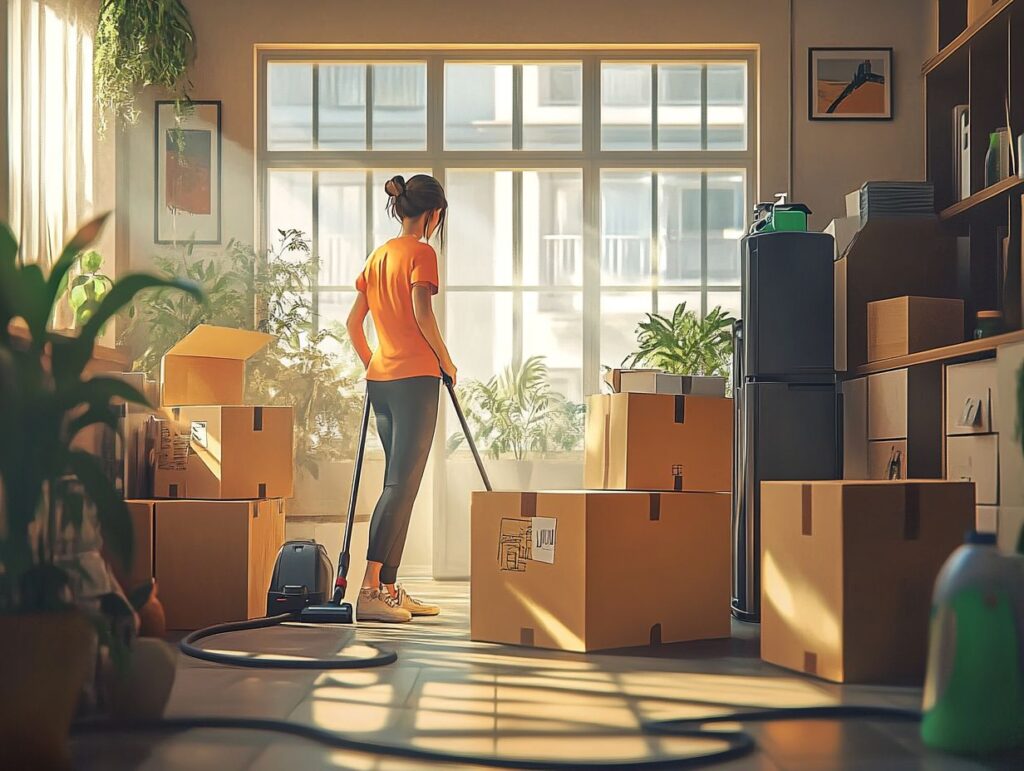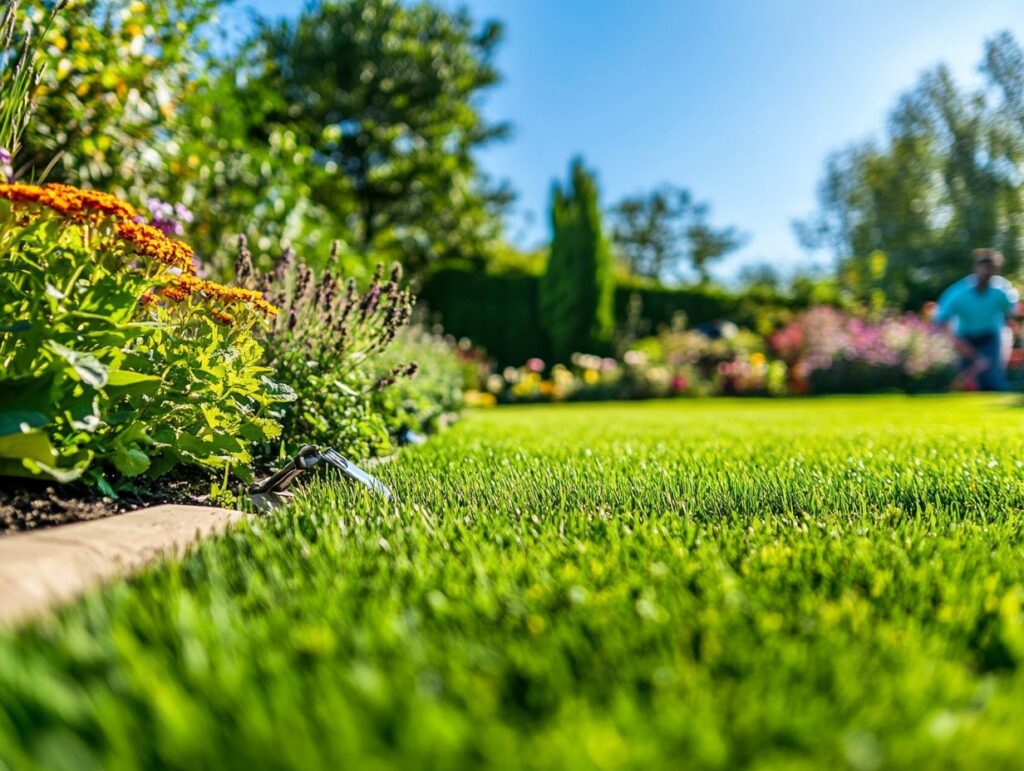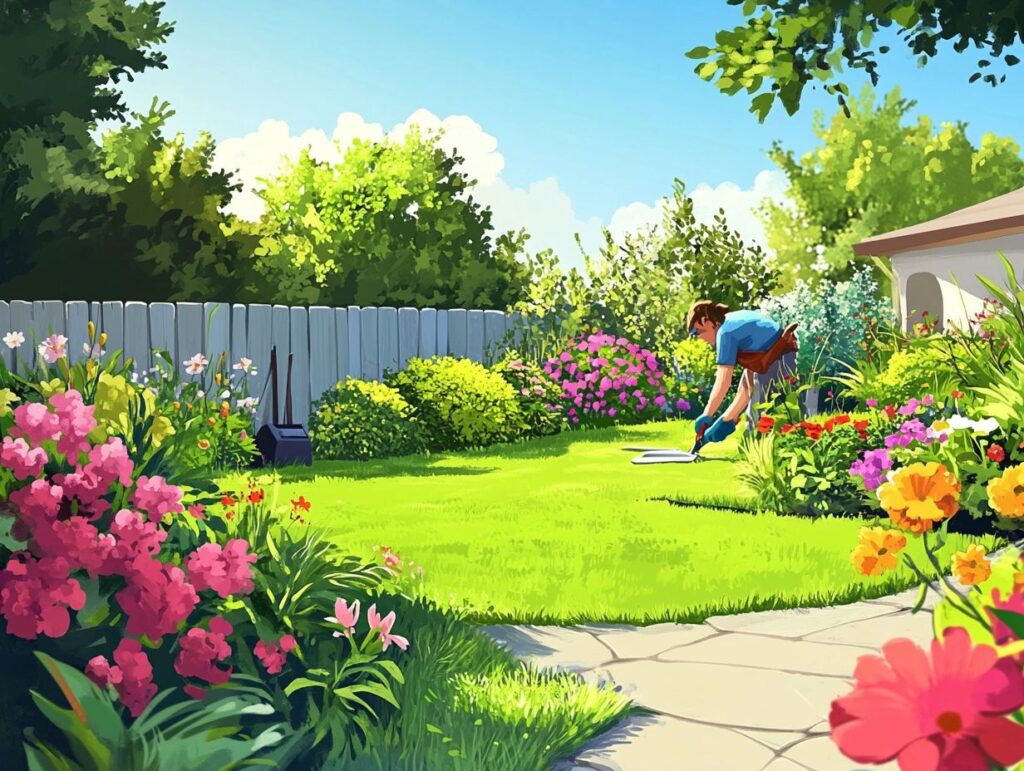You’ve spent months – perhaps years – conquering the Piccadilly Line, deciphering what “quite good” actually means in British, and explaining to your family back home why beans on toast is perfectly acceptable dinner. Now you’re staring down your tenancy end date with the dawning realisation that your landlord expects your student flat to look considerably better than it did when you arrived. Welcome to one of the less glamorous rites of passage for international students in London: the end of tenancy clean.
Here’s the thing – whilst your British flatmates might have picked up the unwritten rules of UK rental deposits through cultural osmosis (or horror stories from older siblings), international students often walk into this situation with no idea just how thorough “professional standard” cleaning actually needs to be. And in areas like Stratford and East London, where student accommodation is plentiful and letting agents are, shall we say, exceptionally thorough with their inspections, understanding what’s expected can mean the difference between getting your full deposit back and funding your landlord’s next holiday to Ibiza.
Why International Students Face Unique End of Tenancy Challenges
Let’s be honest – end of tenancy cleaning is stressful for everyone. But international students are basically playing on hard mode. You’re not just dealing with the standard pressures of securing your deposit; you’re juggling visa timelines, international flights, and potentially wrapping up your entire UK life whilst your British coursemates casually mention they’ll “pop home” next weekend if they’ve forgotten anything.
The cultural differences run deeper than you might expect. In many countries, landlords don’t expect properties to be returned in near-pristine condition. Some cultures view normal wear and tear far more generously than British letting agents, who can spot a grease splatter on a kitchen tile from twenty paces and will absolutely include it in their deduction breakdown.
The Deposit Protection Dilemma
Your deposit is sitting in a government-approved protection scheme – brilliant news, as it means your landlord can’t simply pocket it without justification. Less brilliant? The bar for what constitutes “reasonable cleaning” is set considerably higher than many international students anticipate.
I’ve seen countless students lose £200-300 from their deposits because they genuinely believed they’d cleaned “really well”. They had – by the standards they’d grown up with. But British rental agreements operate in a parallel universe where letting agents will photograph dust on top of door frames and consider limescale a moral failing. Understanding this isn’t pessimism; it’s financial pragmatism. The rules might seem fussy, but they’re the rules you’ve agreed to in that tenancy contract you definitely read thoroughly (we all tell ourselves this).
Time Zones, Flight Dates, and Final Inspections
Picture this: your tenancy ends on the 30th, but you’ve got a flight home on the 28th because that was the only affordable option that got you back before your cousin’s wedding. Your landlord wants to schedule the final inspection on the 29th, but you’ll be somewhere over the Middle East eating disappointing airplane food. This is the logistical Rubik’s Cube that international students face.
Unlike British students who can leave keys with parents or schedule weekend return trips if something goes wrong, you’re coordinating everything across time zones, with the nagging fear that you’ve forgotten something crucial and won’t be able to rectify it from 5,000 miles away.
What “Professional Standard” Actually Means (And Why Your Landlord’s Expectations Aren’t Unreasonable)
When your tenancy agreement mentions “professional standard”, it’s not code for “please hire professionals” (though that’s certainly the easiest solution). It means the property should look as it did in those photos they took on your move-in day – the ones that made everywhere look suspiciously brighter and cleaner than when you actually arrived.
The Kitchen: Where Most Deposits Disappear
If your deposit were a murder mystery, the kitchen would be the crime scene. This is where international students – and frankly, all students – lose the most money, and it’s rarely because of catastrophic damage. It’s death by a thousand grease splatters.
Your oven needs to look like you’ve never discovered the joy of midnight cheese toasties. That means removing the racks, using proper oven cleaner (the industrial stuff, not a hopeful spray of washing-up liquid), and getting every last bit of carbonised food off the bottom. The hob should gleam. Behind the cooker – yes, you need to pull it out – there shouldn’t be a year’s worth of pasta spirals and rice grains creating an accidental art installation.
London’s hard water means limescale builds up faster than you’d believe possible. Your kettle has probably got a crusty interior that looks like a limestone cave formation. The same goes for taps, the sink, and anywhere water regularly sits. Letting agents know what fresh limescale looks like versus cleaned surfaces, and they will check.
The Bathroom: British Rental Standards vs. International Norms
Bathroom expectations vary wildly across cultures. In the UK, particularly in London rentals, letting agents have borderline obsessive standards about grout, sealant, and anything involving that dreaded limescale again. They want your shower screen crystal clear, not sporting that frosted effect from months of hard water.
That mildew in the grout? It needs to go. The soap scum around the bath? Gone. The mysterious hair collection that’s formed in various corners? You get the picture. British rental culture treats bathrooms like they’re preparing for a photoshoot, and that’s the standard you’re being held to.
DIY vs. Professional Cleaning: The International Student’s Cost-Benefit Analysis
Right, let’s talk money – because that’s what this ultimately comes down to. Professional end of tenancy cleaning in East London typically runs £150-250 depending on property size. Your deposit? Probably £800-1,200 if you’re in Stratford or nearby areas. The question isn’t whether you can afford professional cleaning; it’s whether you can afford not to.
The Hidden Costs of DIY (That Nobody Tells You About)
Before you confidently announce you’ll handle the cleaning yourself, let’s do some brutal maths. Professional-grade oven cleaner costs £8-12. A decent mop and bucket you probably don’t own? £20-30. Limescale remover, bathroom cleaner, floor cleaner, window cleaner, microfibre cloths, scrubbing brushes, bin bags – you’re easily looking at £50-70 in supplies.
Then there’s equipment hire. Want to do the job properly? That carpet cleaner hire is £30-40 for the day. Steam cleaner for the bathroom? Another £25-30. You’re already at £100-140 before you’ve lifted a finger, and you’ve still got to spend your final weekend in London on your hands and knees instead of having farewell drinks with friends.
Most importantly – and I say this with the deepest professional respect – you probably don’t know what you’re doing. I’ve been cleaning London properties for years, and I still occasionally discover new and creative places where dirt hides. Missing something during your DIY clean could cost you £200 in deposit deductions. Suddenly that £180 for professional cleaners looks rather shrewd.
What to Look for in an East London Cleaning Service
Not all cleaning companies are created equal, and in areas like Stratford, you’ve got plenty of options – which is both brilliant and overwhelming. Look for companies that specifically offer end of tenancy cleaning with a deposit-back guarantee. This means if your letting agent finds fault with the clean, they’ll return to fix it free of charge.
Check they’re insured (in case anything gets damaged), read recent reviews, and get a detailed quote that breaks down exactly what’s included. Cheaper isn’t always better if they’re cutting corners on the oven or skipping the skirting boards. Ask specifically about their experience with letting agent inspections – you want cleaners who know what these eagle-eyed professionals look for.
Your End of Tenancy Timeline: A Strategic Approach
Three to four weeks before moving out, start planning. I know you’ve got exams, dissertation panic, or final projects, but future you will be immensely grateful. Begin decluttering – anything you’re not shipping home or taking with you needs to go now, not the night before you leave.
Two weeks out, book your professional cleaners if you’re going that route. The good ones get booked up quickly, especially during traditional term-end periods. If you’re going DIY, buy your supplies now and do a test run on one room to gauge how long this is actually going to take.
One week before, do a deep clean of your own belongings and start packing properly. The cleaners can’t work around mountains of your stuff, so the more organised you are, the better job they can do.
Common Pitfalls (And How to Avoid Them)
The biggest mistake? Leaving everything until your final 48 hours. You’re tired, emotional about leaving, stressed about travel, and now you’re supposed to achieve cleaning perfection? Recipe for disaster and deposit deductions.
Second mistake: not photographing everything. Take photos of the property after it’s cleaned but before you hand over keys. If there’s any dispute, you’ve got evidence of the condition you left it in.
Third: ignoring the inventory report from when you moved in. This document is your Bible. If something was already damaged or dirty when you arrived and it’s noted on the inventory, you can’t be charged for it. But you need to actually check what was recorded.
Making Your Last Weeks in London Count (Instead of Scrubbing Skirting Boards)
Look, I’m a professional cleaner, so obviously I believe in the value of a properly cleaned property. But here’s the thing – your final weeks in London should be about memories, not mould removal. You should be having farewell curry on Brick Lane, one last wander through Victoria Park, or finally visiting that museum you always meant to see.
Professional end of tenancy cleaning isn’t an indulgence; it’s buying back your time and peace of mind during an already overwhelming period. You’ve conquered London, navigated a foreign education system, and built a life in one of the world’s great cities. Don’t let the final chapter be a panicked scramble with a mop while your friends are at farewell drinks.
Get the professionals in, focus on the goodbyes that matter, and leave London knowing you’ll get that deposit back – because you’ve earned it.
Read more




